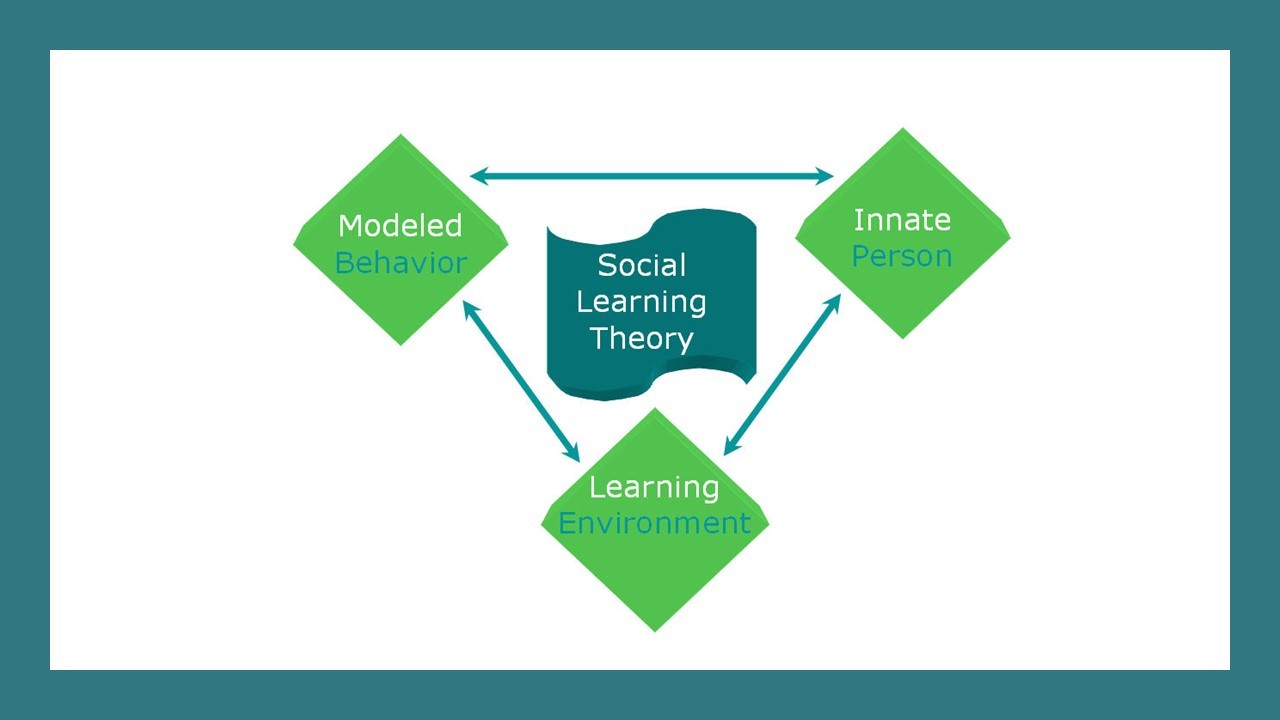Contents
Introduction
Albert Bandura is one of the most influential psychologists of the 20th century, renowned for his work in social cognitive theory and the concept of self-efficacy. His groundbreaking research has significantly impacted the fields of psychology, education, and behavioral sciences. Bandura’s theories have provided valuable insights into human behavior, learning processes, and the importance of observational learning.
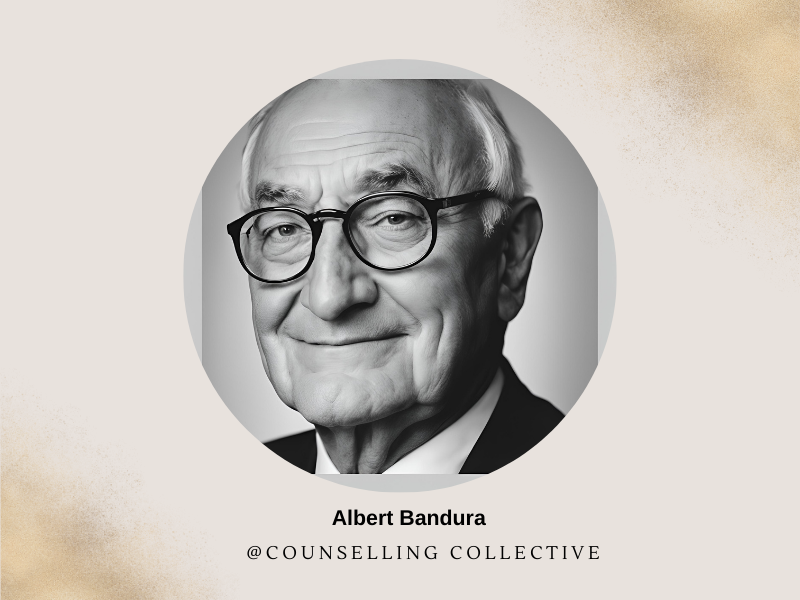
In this article, we uncover Albert Bandura’s contributions to psychology, focusing on his social cognitive theory, the concept of self-efficacy, and their profound impact on education and behavioral sciences.
Early Life and Education
Albert Bandura was born on December 4, 1925, in Mundare, Alberta, a small town in Canada. He was the youngest of six children in a family of Eastern European descent. His parents, who were immigrants from Ukraine and Poland, instilled in him a strong work ethic and the value of education. Growing up in a rural environment, Bandura developed a sense of curiosity and resilience that would later shape his scientific inquiries.
Image Source: Linda A. Cicero/Stanford News Service
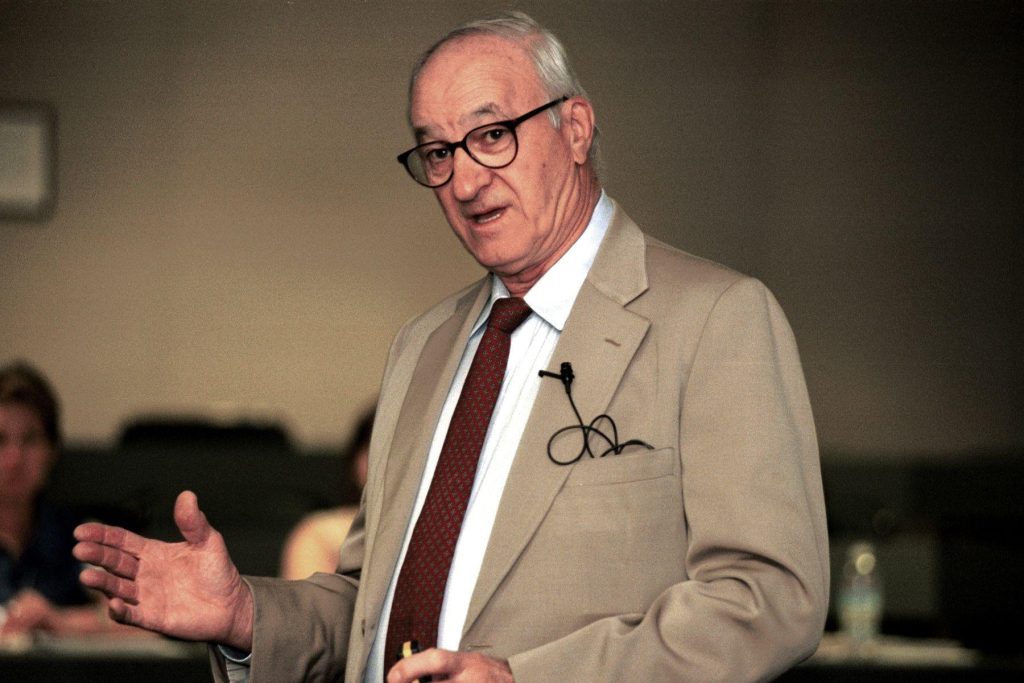
Bandura’s early education took place in a small school with limited resources, which required him to be self-motivated and resourceful. Despite the challenges, he excelled academically and developed a keen interest in understanding human behavior. This curiosity was further fueled by his summer job working on the Alaska Highway, where he observed diverse social interactions and cultural behaviors, sparking his interest in psychology.
Educational Journey
| Aspect | Details |
| Early Education | Bandura attended a small elementary and high school in Mundare, Alberta. The limited resources of his school required him to be self-motivated and resourceful. |
| University of British Columbia | Bandura earned his Bachelor of Arts degree in Psychology in 1949. He was initially undecided about his career path, but a psychology course sparked his interest in the field. |
| University of Iowa | He pursued his M.A. and Ph.D. in Clinical Psychology, completing his doctorate in 1952. His doctoral research focused on aggression and social learning, setting the stage for his later work. |
| Research | During his doctoral studies, Bandura was influenced by the behaviorist tradition but sought to understand the cognitive processes underlying learning and behavior. His research would eventually lead to the development of social cognitive theory. |
Timeline of Early Influences
| Aspect | Details |
| B.F. Skinner | Skinner’s work on operant conditioning influenced Bandura’s early interest in learning and behavior, although Bandura later diverged to emphasize cognitive processes. |
| Clark Hull | Hull’s theories on learning and motivation provided a framework for Bandura’s early research. |
| Neal E. Miller | Miller’s work on social learning and imitation played a significant role in shaping Bandura’s thinking. |
| Kenneth Spence | Spence’s research on behavior and learning also influenced Bandura’s early academic development. |
Major Theories and Works
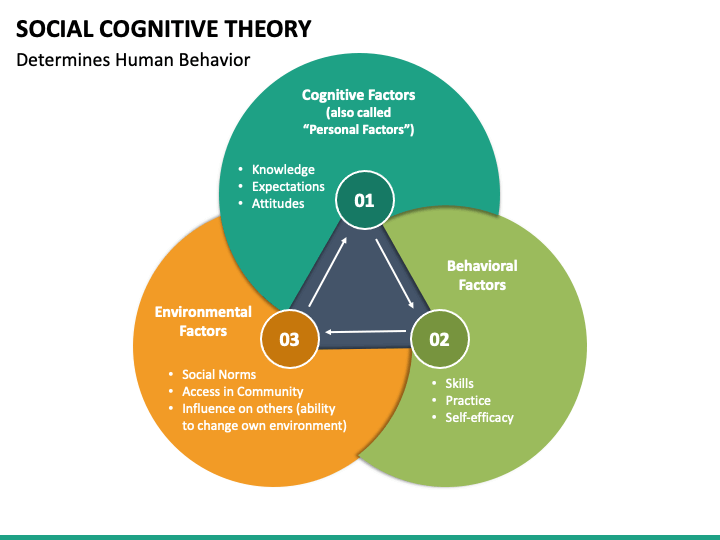
Social Cognitive Theory
In Social Cognitive Theory, Albert Bandura emphasizes the role of observational learning, imitation, and modeling in human behavior. This theory integrates cognitive and behavioral perspectives, highlighting the dynamic interplay between personal, behavioral, and environmental factors. Key elements include:
- Observational Learning: Social Cognitive Theory posits that individuals learn behaviors by observing others, with imitation playing a critical role in the learning process.
- Reciprocal Determinism: Bandura’s theory highlights the concept of reciprocal determinism, where personal factors, behavior, and the environment continuously influence each other.
Image Source: simplypsychology.org
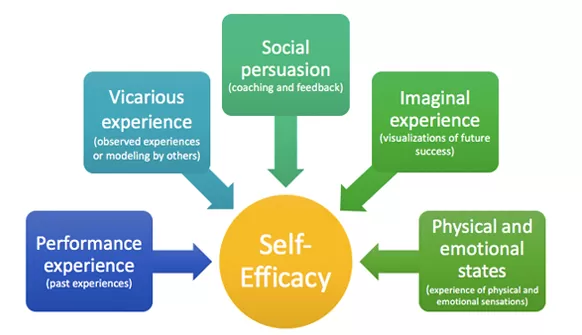
Self-Efficacy
Albert Bandura introduced the concept of self-efficacy, which refers to an individual’s belief in their ability to successfully perform and achieve goals. This belief plays a critical role in how people approach challenges, set goals, and maintain motivation. Key elements include:
- Development: Self-efficacy is developed through experiences of success, social modeling, verbal encouragement, and managing physiological and emotional states.
- Confidence in Abilities: Self-efficacy influences the confidence individuals have in their ability to overcome obstacles and achieve desired outcomes.
- Impact on Behavior: Higher self-efficacy is linked to greater perseverance and resilience, while lower self-efficacy can lead to avoidance of challenges and decreased motivation.
Image Source: envisionyourevolution.com
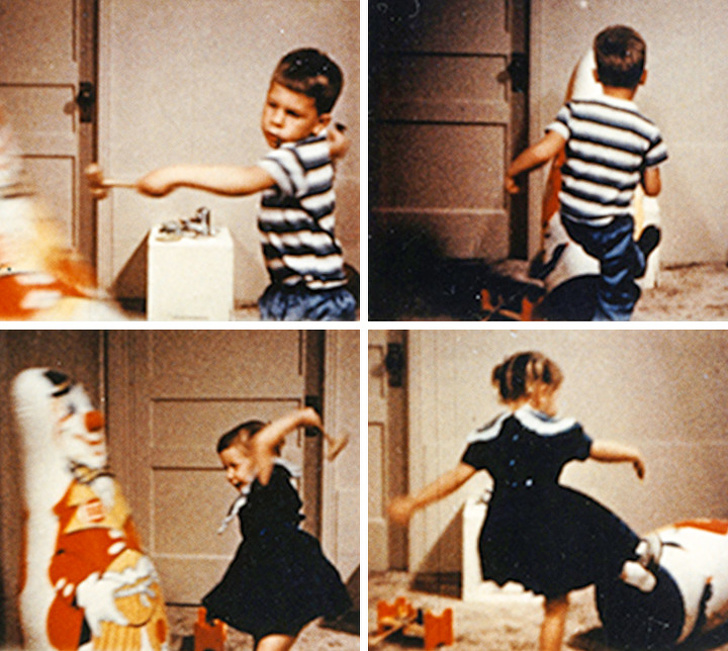
Observational Learning and the Bobo Doll Experiment
Albert Bandura’s Bobo Doll Experiment is one of the most famous studies in psychology, demonstrating the power of observational learning. This experiment showed how children imitate aggressive behavior observed in adults, providing strong evidence for the social cognitive theory. Key elements include:
- Cognitive Factors: The study emphasized that learning involves cognitive processes, where individuals not only mimic observed behaviors but also consider the consequences of these actions.
- Modeling Behavior: The experiment highlighted that children learn and replicate behaviors by observing others, especially authority figures or role models.
Image Source: techofcomm.wordpress.com

Contributions to Behavioral and Cognitive Psychology
Albert Bandura’s work has profoundly impacted both behavioral and cognitive psychology, bridging the gap between these two approaches. His contributions have shaped the understanding of human behavior and learning processes. Key elements include:
- Observational Learning: His research highlighted the significance of learning through observation, demonstrating that individuals can acquire new behaviors by watching others, even without direct reinforcement.
- Integration of Theories: Bandura’s social cognitive theory integrates behavioral principles with cognitive processes, emphasizing the role of beliefs, expectations, and attitudes in shaping behavior.
Image Source: opentext.wsu.edu
Albert Bandura’s Social Learning Theory revolutionized the understanding of how people learn by emphasizing the role of observation and imitation. Key elements include:
- Cognitive Processes: Bandura emphasized that learning involves more than just copying behavior; cognitive factors like attention, retention, and motivation play crucial roles in the process.
- Observational Learning: Bandura demonstrated that individuals can learn new behaviors simply by watching others, without needing direct reinforcement, as shown in his famous Bobo Doll experiment.
- Modeling: The theory posits that people, especially children, imitate behaviors observed in role models, particularly those they view as similar, successful, or admirable.
Image Source: linkedin.com
Psychologists Influenced by Bandura
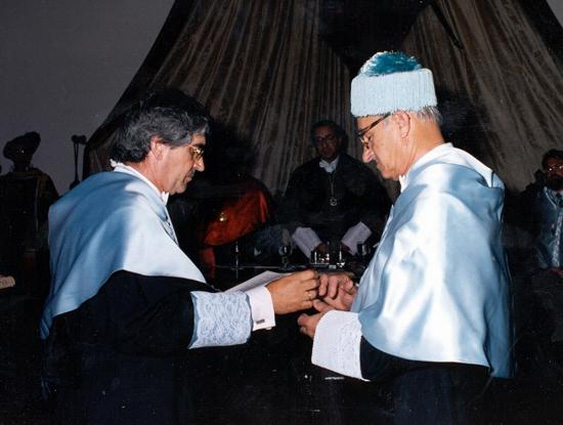
- Julian Rotter – Known for developing the social learning theory of personality, Rotter’s work on locus of control was influenced by Bandura’s emphasis on cognitive factors in learning (Rotter, 1954).
- Walter Mischel – Mischel’s work on the cognitive-affective personality system and delay of gratification was inspired by Bandura’s social cognitive approach (Mischel, 1968).
- Richard Lazarus – Lazarus’s research on stress and coping mechanisms integrated Bandura’s ideas on self-efficacy and cognitive appraisal (Lazarus, 1991).
- Albert Ellis – Ellis’s development of rational emotive behavior therapy (REBT) incorporated Bandura’s concepts of observational learning and cognitive restructuring (Ellis, 1962).
- Philip Zimbardo – Zimbardo’s work on the Stanford prison experiment and social roles was influenced by Bandura’s theories on social behavior and modeling (Zimbardo, 1971).
Impact on Psychology
- Influence on Modern Thought: Bandura’s ideas have had a profound impact on various fields within psychology, including developmental psychology, educational psychology, and clinical psychology. His social cognitive theory has provided a robust framework for understanding how people learn and develop through interactions with their environment. This theory has influenced educational practices, therapeutic approaches, and interventions aimed at enhancing self-efficacy and promoting positive behavior change.
- Contributions to Related Fields: Bandura’s interdisciplinary approach has extended his influence to areas such as education, health, and organizational psychology. His research on self-efficacy has been applied to improve educational outcomes, enhance patient adherence to medical treatments, and increase employee motivation and performance. Bandura’s work has also informed public health campaigns, emphasizing the importance of self-efficacy and modeling in promoting health behaviors.
Legacy and Influence
Long-Term Impact
Albert Bandura’s legacy is still unfolding, but his contributions to psychology and education have already left a lasting mark. His holistic approach to understanding human behavior and his emphasis on the interplay between cognitive, behavioral, and environmental factors continue to influence both academic and practical applications in various fields.
Recognition and Honors
Bandura has received numerous accolades and recognition for his work, including several honorary doctorates and prestigious awards. He has served as president of the American Psychological Association and has been a prominent figure in advancing the field of psychology through his research, teaching, and public speaking engagements.
Criticism and Controversies
While Albert Bandura has garnered significant recognition for his contributions to psychology, his work has not been without criticism. Some argue that his focus on cognitive processes and observational learning fails to account for the complexities of emotional and unconscious factors in behavior. Additionally, the ecological validity of his experimental studies, such as the Bobo Doll Experiment, has been questioned, particularly regarding how well these findings generalize to real-world settings. Despite these criticisms, Bandura’s pioneering research on social cognitive theory and self-efficacy remains highly influential and continues to inspire further research and debate in the field.
Conclusion
Albert Bandura’s life and work have profoundly shaped the fields of psychology and education. His theories on social cognitive theory, self-efficacy, and observational learning offer valuable insights into human behavior and learning processes. By emphasizing the importance of cognitive factors and the dynamic interplay between personal, behavioral, and environmental influences, Bandura has provided a comprehensive framework for understanding and promoting human development and well-being. As his legacy continues to unfold, Bandura’s contributions will likely inspire future generations of researchers, educators, and practitioners.
Bibliography
- [1] Bandura, A. (1959). Adolescent Aggression. New York: Ronald Press.
- [2] Bandura, A. (1977). Social Learning Theory. Englewood Cliffs, NJ: Prentice Hall.
- [3] Bandura, A. (1986). Social Foundations of Thought and Action: A Social Cognitive Theory. Englewood Cliffs, NJ: Prentice Hall.
- [4] Bandura, A. (1997). Self-efficacy: The Exercise of Control. New York: W.H. Freeman.
- [5] Ellis, A. (1962). Reason and Emotion in Psychotherapy. New York: Lyle Stuart.
- [6] Lazarus, R. S. (1991). Emotion and Adaptation. New York: Oxford University Press.
- [7] Mischel, W. (1968). Personality and Assessment. New York: Wiley.
- [8] Rotter, J. B. (1954). Social Learning and Clinical Psychology. Englewood Cliffs, NJ: Prentice Hall.
- [9] Zimbardo, P. G. (1971). The Stanford Prison Experiment: A Simulation Study of the Psychology of Imprisonment. Stanford, CA: Stanford University.

